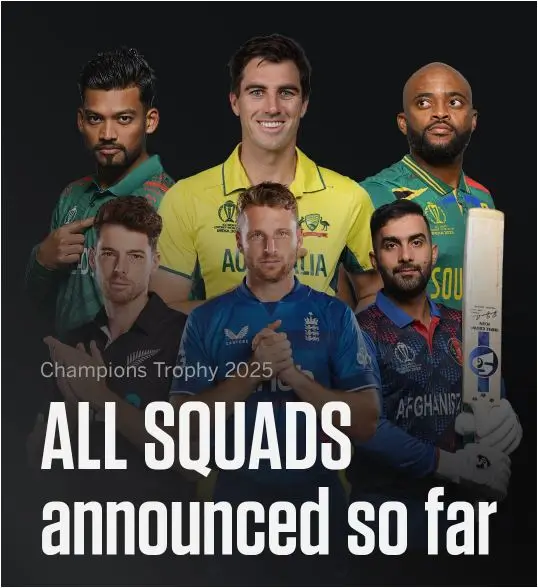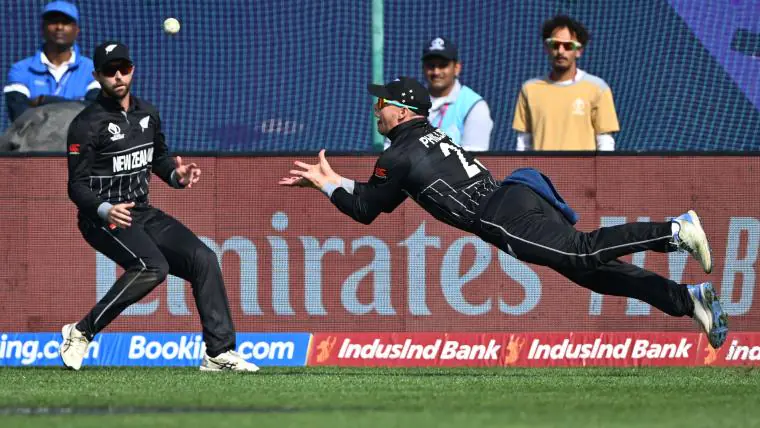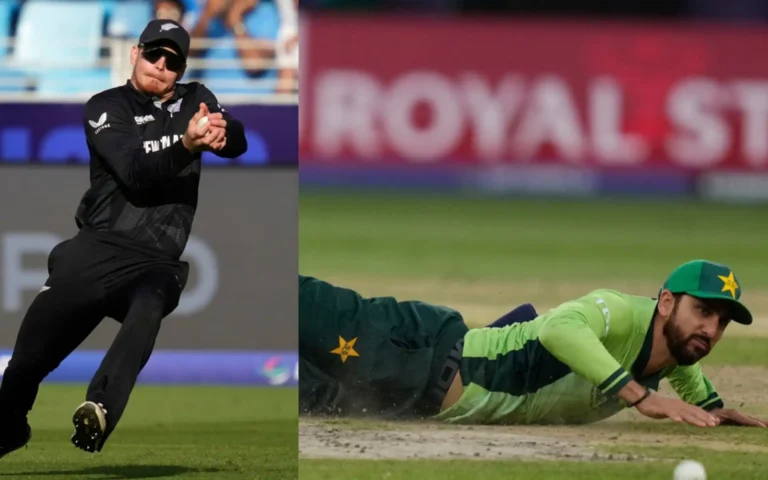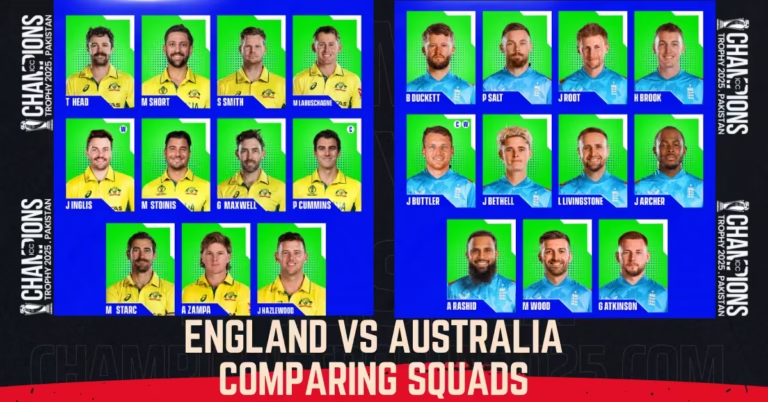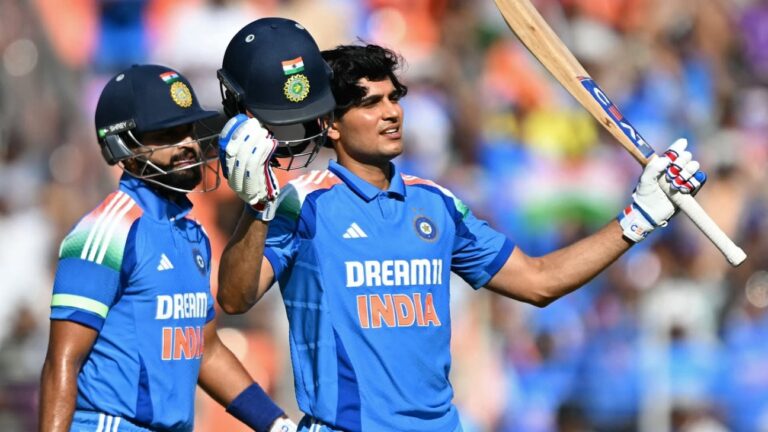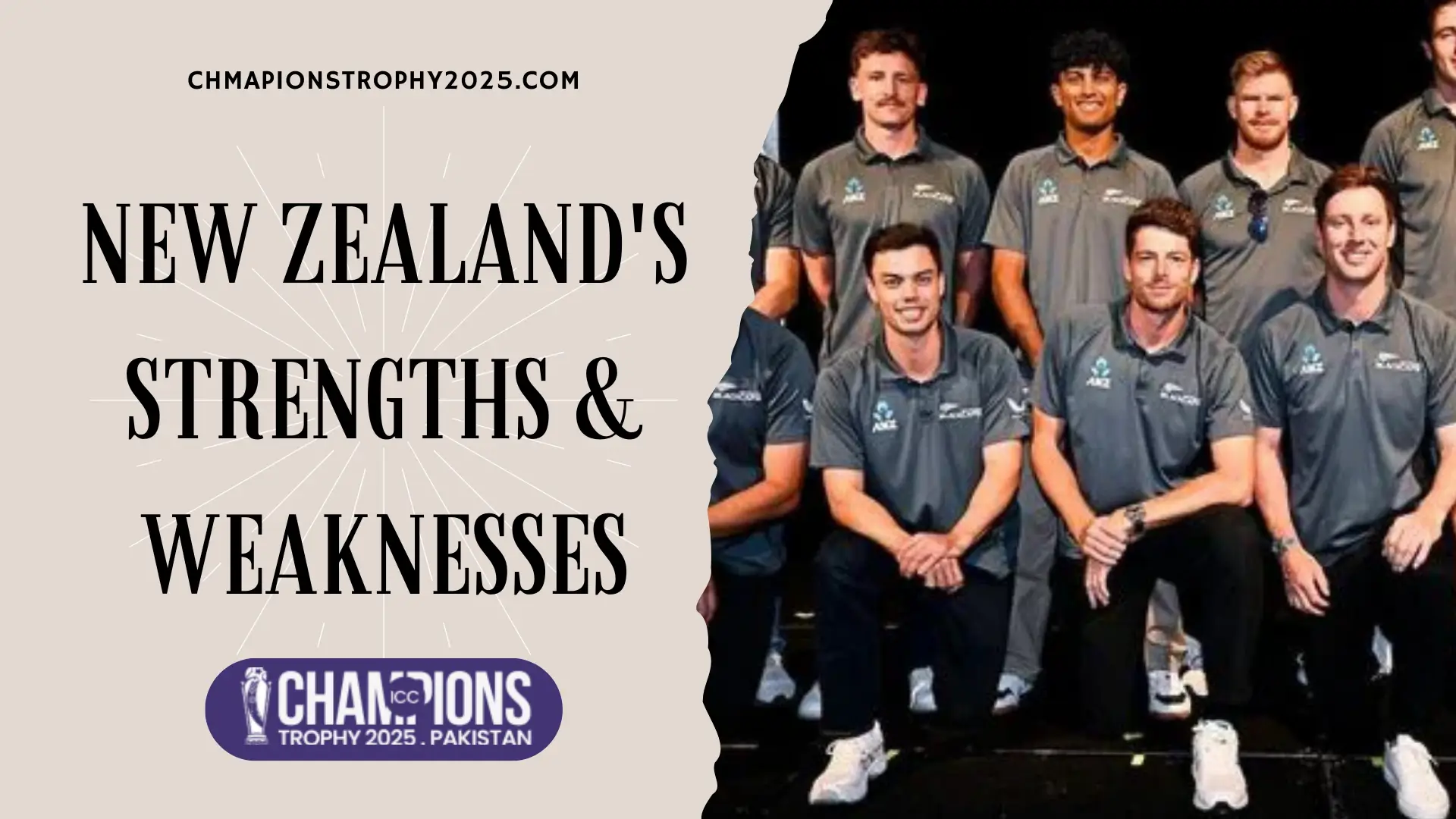
The ICC Champions Trophy 2025 is set to take place from February 19 to March 9, 2025, marking the tournament’s return after an eight-year hiatus. Hosted by Pakistan and the United Arab Emirates, this prestigious event will feature the top eight cricketing nations competing for the coveted title. The Champions Trophy is renowned for its high-intensity matches and serves as a significant precursor to the World Cup, offering teams a platform to assert their dominance in the One Day International (ODI) format.
New Zealand has consistently been a formidable presence in ICC tournaments, often surpassing expectations. Their journey to the finals in the 2019 Cricket World Cup and consistent semi-final appearances in other major tournaments underscore their resilience and competitive spirit. As the cricketing world anticipates the upcoming Champions Trophy, it’s essential to analyze New Zealand’s current strengths and weaknesses to gauge their prospects in the competition.
This analysis aims to provide a comprehensive overview of the New Zealand cricket team’s capabilities and potential challenges as they prepare for the ICC Champions Trophy 2025.
Strengths
As the ICC Champions Trophy 2025 approaches, New Zealand’s cricket team boasts several strengths that position them as formidable contenders:
World-Class Bowling Attack
New Zealand’s bowling lineup is both versatile and potent:
- Pace Attack: The squad features experienced pacers like Lockie Ferguson and Matt Henry, known for their ability to generate pace and movement. Emerging talents such as Will O’Rourke, Ben Sears, and Nathan Smith add depth and fresh energy to the pace department.
- Spin Options: Captain Mitchell Santner leads the spin attack, bringing his left-arm orthodox expertise. He is supported by all-rounders Michael Bracewell and Rachin Ravindra, providing a balanced spin arsenal adaptable to various pitch conditions.
This combination allows New Zealand to adapt their bowling strategies effectively across different match situations.
Strong Middle Order
The middle-order batting lineup offers stability and experience:
- Kane Williamson: Returning to the squad, Williamson’s technical proficiency and calm demeanor make him a pivotal figure in anchoring the innings during high-pressure scenarios.
- Tom Latham: Serving as the wicketkeeper-batsman, Latham’s consistency and experience add depth, ensuring resilience in the middle overs.
Their combined experience is crucial for navigating challenging match situations.
Fielding Prowess
New Zealand is renowned for its exceptional fielding standards:
- Athleticism: Players like Glenn Phillips exemplify agility and sharp reflexes, often converting half-chances into wickets.
- Run-Saving Abilities: The team’s collective commitment to fielding excellence frequently results in saved runs and increased pressure on opposing batsmen.
This high level of fielding can significantly influence match outcomes by restricting runs and creating wicket-taking opportunities.
Calm Leadership
Under the captaincy of Mitchell Santner, New Zealand benefits from composed and strategic leadership:
- Mitchell Santner: Known for his calm demeanor and tactical acumen, Santner’s leadership fosters team unity and effective decision-making under pressure.
His approach ensures that the team remains focused and adaptable, crucial traits for success in high-stakes tournaments.
Collectively, these strengths underscore New Zealand’s potential to make a significant impact in the ICC Champions Trophy 2025.
Weaknesses
While New Zealand’s cricket team possesses notable strengths, they also face several challenges that could impact their performance in the ICC Champions Trophy 2025:
Over-Reliance on Key Players
- Dependence on Kane Williamson: Williamson’s role as a premier batsman is pivotal. An off day or potential injury could expose vulnerabilities in the batting lineup, challenging the team’s ability to post or chase competitive totals.
- Reliance on Senior Bowlers: The absence of seasoned bowlers like Trent Boult and Tim Southee in the current squad places significant pressure on less experienced bowlers to deliver consistently.
Lack of Firepower in the Lower Order
- Batting Depth Concerns: While the top and middle-order are robust, the lower-order lacks explosive hitters comparable to those in teams like India or England. This limitation may hinder New Zealand’s ability to accelerate scoring in the final overs, potentially leaving them short of par scores in high-stakes matches.
Inconsistent Spin Options
- Spin Bowling Challenges: Although Mitchell Santner leads the spin attack, the overall spin department lacks depth. This could be a disadvantage on subcontinental pitches, where effective spin bowling is crucial. Facing spin-heavy teams like India or Sri Lanka may further expose this weakness.
Past Struggles in Knockout Matches
- Knockout Stage Performance: Historically, New Zealand has faced challenges in high-pressure knockout matches. Overcoming mental hurdles and maintaining composure during critical moments remain areas for improvement to advance beyond the semi-finals and finals in major tournaments.
Addressing these weaknesses will be essential for New Zealand to enhance their competitiveness and achieve success in the ICC Champions Trophy 2025.
Opportunities in 2025
The ICC Champions Trophy 2025 presents several opportunities for New Zealand to capitalize on their strengths and address past challenges:
Favorable Conditions
The tournament will be held in Pakistan and the United Arab Emirates from February 19 to March 9, 2025. New Zealand’s adaptability to diverse conditions, including subcontinental pitches, can work to their advantage. Their balanced bowling attack, featuring both pace and spin options, is well-suited to the expected pitch conditions in these regions.
Emerging Talent
New Zealand’s squad includes promising players poised to make significant impacts:
- Finn Allen: Known for his aggressive batting, Allen has delivered standout performances, such as his explosive innings against Pakistan in Dunedin, where he scored a career-high 137 off 62 deliveries.
- Michael Bracewell: An all-rounder contributing with both bat and ball, Bracewell has been recognized for his impactful performances, including a notable role in New Zealand’s victory over Ireland, where he took 2/26 and added valuable runs.
Integrating these emerging talents with experienced players enhances the team’s depth and versatility.
Overcoming Past Shortcomings
Historically, New Zealand has faced challenges in high-pressure knockout matches. The upcoming tournament offers an opportunity to address these issues by leveraging their experienced leadership and fostering mental resilience. The blend of seasoned players and fresh talent provides a balanced approach to navigating crucial moments, aiming to secure their first ICC Champions Trophy title.
By capitalizing on favorable conditions, nurturing emerging talent, and focusing on mental fortitude, New Zealand is well-positioned to make a significant impact in the ICC Champions Trophy 2025.
Threats from Opposing Teams
As New Zealand prepares for the ICC Champions Trophy 2025, they must be cognizant of the formidable challenges posed by cricketing powerhouses such as India, Australia, and England.
India
India’s cricket team is renowned for its robust batting lineup and versatile bowling attack. Historically, New Zealand has had mixed results against India in ICC events. Notably, New Zealand defeated India in the 2019 World Cup semi-final, but India secured a victory in the 2023 World Cup semi-final, eliminating New Zealand. Overall, in World Cup encounters, India has won 3 out of 8 matches against New Zealand.
Australia
Australia’s aggressive style and depth in both batting and bowling make them perennial contenders in international tournaments. New Zealand has often found it challenging to overcome Australia in high-stakes matches. For instance, in the 2015 World Cup final, Australia defeated New Zealand by seven wickets. Additionally, Australia’s recent performances, such as their dominant series win against New Zealand, underscore their formidable form.
England
England’s dynamic approach, especially in limited-overs cricket, poses a significant threat. The 2019 World Cup final between England and New Zealand ended in a tie, with England declared winners based on boundary count, highlighting the closely matched competition. In Test cricket, England has also demonstrated strength against New Zealand, securing series victories both at home and away.
In summary, while New Zealand has had moments of success against these top-tier teams, their overall record indicates challenges in overcoming them during critical matches. Addressing these challenges will be crucial for New Zealand’s aspirations in the upcoming ICC Champions Trophy 2025.
As the ICC Champions Trophy 2025 approaches, New Zealand’s cricket team stands as a formidable contender, bolstered by a blend of seasoned experience and emerging talent.
Strengths
- Balanced Bowling Attack: The team boasts a versatile bowling lineup, with pacers like Lockie Ferguson and Matt Henry providing speed and precision, while captain Mitchell Santner leads a competent spin department.
- Experienced Middle Order: The return of Kane Williamson adds stability and expertise to the batting lineup, complemented by the reliable presence of Tom Latham.
- Exceptional Fielding: New Zealand’s commitment to high fielding standards often translates into saved runs and increased pressure on opponents.
- Strategic Leadership: Mitchell Santner’s calm and calculated approach as captain fosters team unity and effective decision-making under pressure.
Weaknesses
- Over-Reliance on Key Players: The team’s performance heavily leans on pivotal figures like Williamson and senior bowlers. Their absence or off-days could expose vulnerabilities.
- Limited Lower-Order Firepower: The lack of explosive hitters in the lower order may hinder the team’s ability to accelerate scoring in the final overs, especially when compared to teams like India or England.
- Inconsistent Spin Depth: While Santner provides a solid spin option, the overall depth in the spin department is limited, which could be a disadvantage on spin-friendly pitches.
- Historical Knockout Stage Challenges: Past tournaments have seen New Zealand falter in high-pressure knockout matches, indicating a need to bolster mental resilience.
Despite these challenges, the upcoming tournament offers New Zealand a prime opportunity to leverage their strengths and address past shortcomings. The favorable conditions in Pakistan and the UAE, coupled with the emergence of dynamic players like Finn Allen and Michael Bracewell, position the team well to make a significant impact. With strategic planning and cohesive teamwork, New Zealand has the potential to claim their first ICC Champions Trophy title in 2025.
Check out the Champions Trophy Stats
